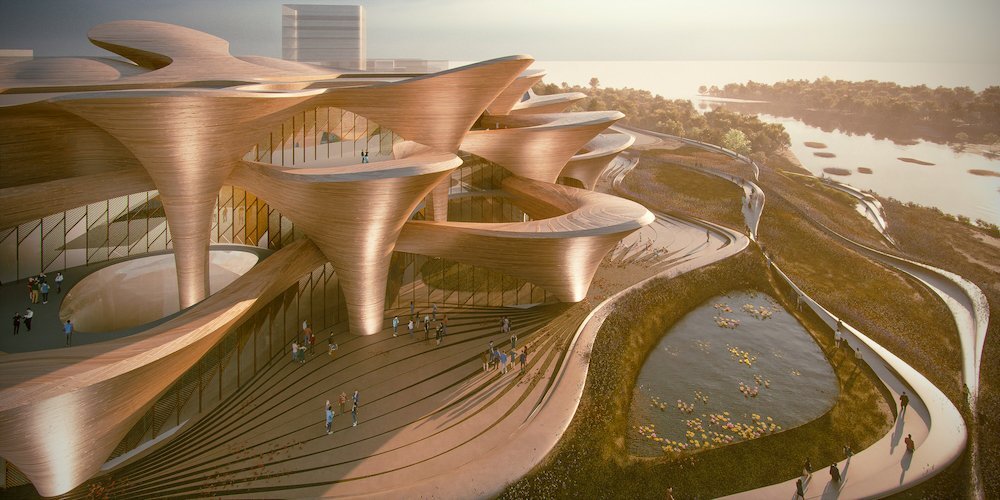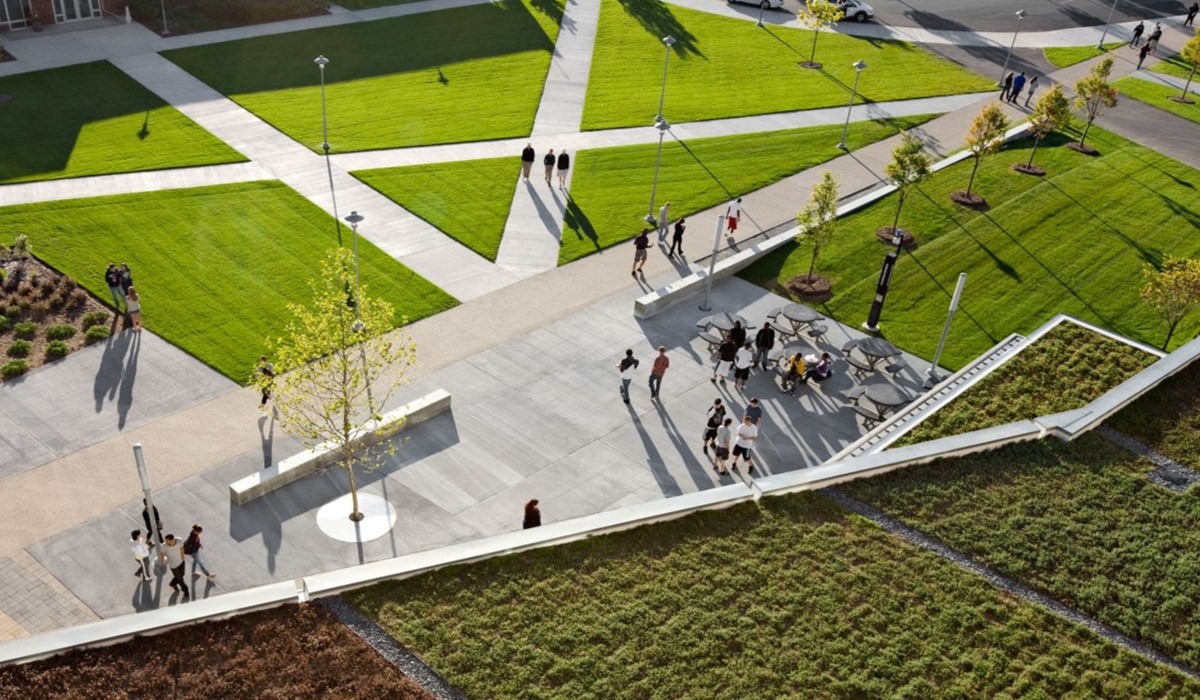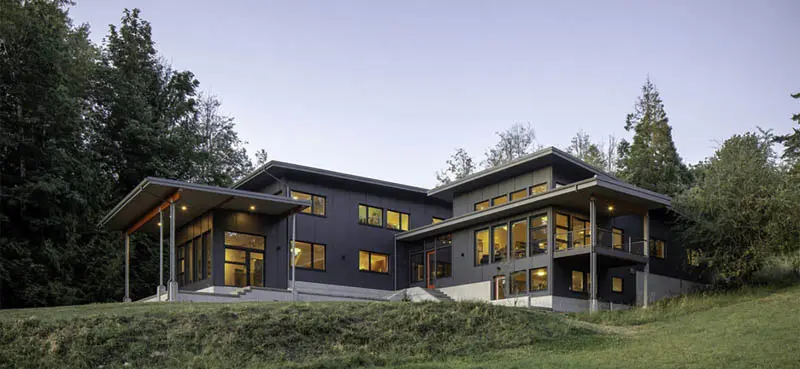When it comes to crafting a dissertation in architecture, the possibilities are vast and intriguing, offering opportunities to explore the intersection of design, culture, technology, and sustainability. Selecting the right topic not only fuels your passion but also allows you to make a meaningful contribution to the architectural field.
What Are Architecture Dissertation Topics?
Architecture dissertation topics encompass a broad range of subjects, from the exploration of historical architectural movements to investigating emerging design technologies. These topics serve as the foundation for critical analysis and innovative research, addressing both past influences and future challenges in the built environment.
Key Areas to Explore in Architecture Dissertation Topics
1. Urban Design and Community Development
Explore how urban planning and design shape community dynamics. Topics might include:
- The impact of urban renewal projects on social cohesion in the UK.
- Comparative analysis of urban planning practices in Europe and Asia.
- The role of green spaces in enhancing urban livability.
2. Sustainable Architecture
Sustainability remains a cornerstone of modern architecture. Consider:
- The use of renewable materials in residential architecture.
- A critical analysis of passive house standards in Europe.
- The integration of circular economy principles into building design.
3. Smart Technologies in Architecture
The integration of technology is revolutionizing architectural practices. Investigate:
- The role of smart buildings in achieving energy efficiency.
- The impact of artificial intelligence on architectural design processes.
- How augmented reality is transforming architectural visualization.
4. Cultural and Societal Influences
Architecture often reflects cultural and societal narratives. Potential topics include:
- The influence of Islamic architecture on contemporary designs.
- How cultural heritage preservation affects urban redevelopment.
- A study of social housing projects and their impact on marginalized communities.
5. Iconic Architects and Architectural Movements
Analyze the contributions of renowned architects or movements. Examples:
- A comparative study of Zaha Hadid’s design philosophy and its impact on modern architecture.
- The Bauhaus movement and its influence on contemporary minimalist design.
- Frank Lloyd Wright’s organic architecture in the context of sustainable practices.
Dissertation Topics Brief Service
At dissertation-help.co.uk, we offer a comprehensive Dissertation Topics Brief Service to help you select a suitable dissertation topic. Our expert writers can help you generate ideas and outline a detailed topic brief of 500 words. This service ensures that you are headed in the right direction for your dissertation, with a clear and focused topic that meets academic standards.
Download Sample Dissertations Pdf
Before you start working on your own dissertation, it’s helpful to take a look at some sample dissertations. Our collection of sample dissertations covers a wide range of civil law topics and can give you a better understanding of how to structure and write your own dissertation.
You can download free dissertation samples and topic briefs to get an idea of how to approach your topic and craft an engaging dissertation. This can serve as inspiration and guidance throughout your research process.
Why Are Dissertation Topics in Architecture Important?
The significance of selecting the right topic lies in its ability to:
- Address real-world challenges such as climate change, urbanization, and cultural preservation.
- Showcase your expertise and critical thinking as a student or researcher.
- Contribute to the broader architectural discourse by exploring new ideas and innovative solutions.
How to Choose the Right Architecture Dissertation Topic
Selecting an architecture dissertation topic requires careful consideration. Follow these steps:
- Identify Your Interests: Focus on areas of architecture you are passionate about, such as sustainable design, cultural influences, or urban planning.
- Conduct a Literature Review: Explore recent studies and identify gaps in the research.
- Consider Relevance: Choose a topic that aligns with current industry trends or societal needs.
- Ensure Feasibility: Make sure the topic is manageable within your available time and resources.
- Seek Feedback: Discuss your ideas with mentors, professors, or peers to refine your focus.
Top Architecture Dissertation Topics
Urban Design and Planning
- The role of green spaces in modern urban design: A case study of European cities.
- The impact of gentrification on local communities in the UK: A spatial analysis.
- Designing for social equity: Examining the impact of affordable housing policies in urban areas.
- The influence of smart city technologies on urban planning in the 21st century.
- A comparative study of public transport infrastructure and its influence on urban development in European cities.
Sustainable Architecture
- Evaluating the environmental impact of using recycled materials in urban construction.
- Passive house design principles in the UK: Assessing their long-term sustainability.
- The integration of biophilic design in office buildings: Improving worker productivity and well-being.
- Sustainable architecture in developing countries: Challenges and opportunities.
- Assessing the role of sustainable urban drainage systems (SUDS) in flood prevention.
Technological Innovations in Architecture
- The integration of Building Information Modeling (BIM) in architectural design: A case study in the UK.
- The future of 3D printing in architecture: Potential applications for affordable housing.
- What an augmented reality (AR) is reshaping architectural design and client interaction.
- Exploring the role of Artificial Intelligence in the design process: Opportunities and challenges.
- Smart homes and buildings: Examining the future of IoT (Internet of Things) in residential design.
Architectural History and Theory
- The influence of Ancient Greek architecture on modern design: A comparative analysis.
- Deconstructivism in architecture: Analyzing the legacy of Frank Gehry’s work.
- The evolution of skyscrapers: How technology and materials have changed their design.
- Art Nouveau architecture in Europe: A study of its impact on modern architectural styles.
- The role of Gothic architecture in the development of modern construction techniques.
Cultural Influences on Architecture
- How Islamic architecture influences contemporary design practices in Europe.
- The impact of colonial architecture on post-colonial urban planning in Africa.
- A study of cultural symbolism in the architecture of sacred spaces: Churches, mosques, and temples.
- The role of vernacular architecture in preserving cultural identity in rural communities.
- Postmodernism and cultural narratives: A critical analysis of public spaces in European cities.
Architectural Design and Human Interaction
- How the design of public spaces influences social behavior: A study of parks and plazas.
- The relationship between architecture and mental health: The role of design in therapeutic environments.
- The impact of architectural design on the aging population: Designing age-friendly public spaces.
- Accessibility in architectural design: A critical study of public spaces and buildings in the UK.
- The role of urban parks in fostering community engagement and interaction.
Building Materials and Construction Methods
- A comparative study of traditional brick vs. modern sustainable building materials in Europe.
- The impact of lightweight materials on the structural design of skyscrapers.
- The use of modular construction in reducing housing costs: A case study of the UK.
- The benefits and challenges of using bamboo as a building material in tropical climates.
- Exploring the potential of recycled plastic in construction: Sustainability and cost-effectiveness.
Architectural Ethics and Social Responsibility
- The ethical implications of architectural design in disaster-prone regions: A study of post-earthquake rebuilding efforts.
- The role of architects in shaping social policy: A case study of affordable housing projects in London.
- Exploring the social responsibility of architects in combating climate change.
- The ethics of using design for surveillance: A critical analysis of public space design.
- The role of architecture in creating inclusive spaces for marginalized communities.
Architectural Education and Practice
- How architectural education can adapt to meet the challenges of sustainable design.
- The impact of digital tools and technology on the education of future architects.
- The role of architecture firms in mentoring new architects: A study of practices in the UK.
- The evolution of architectural internships: Adapting to new technology and trends.
- Bridging the gap between theory and practice in architectural design: A review of architectural studios in Europe.
Conclusion
Architecture dissertation topics offer a rich and diverse spectrum for exploration, ranging from historical studies to cutting-edge innovations. Whether analyzing urban design’s societal impact, pioneering sustainable materials, or exploring cultural narratives, the right topic can make your research both meaningful and impactful. Choose a topic that resonates with your passion and expertise and use it as a platform to contribute to the advancement of architectural practices.
FAQs on Architecture Dissertation Topics
1. How do I choose the right architecture dissertation topic?
Choosing the right architecture dissertation topic involves identifying areas you’re passionate about and that are relevant to the field. Start by reflecting on areas like urban design, sustainability, architectural history, or technology that align with your interests. It’s also essential to ensure the topic is manageable, researchable, and offers opportunities for meaningful contributions to the field.
2. What are some popular architecture dissertation topics?
Popular architecture dissertation topics include:
- Sustainable architecture and green building practices.
- The integration of smart technologies in modern architecture.
- Urban planning and its impact on community development.
- Historical architectural movements and their influence on modern design.
- Cultural influences on architectural design and urban spaces.
3. Can I focus on specific architects or architectural firms for my dissertation?
Yes, focusing on a specific architect or architectural firm can make for a compelling dissertation topic. You could analyze the design philosophies, methodologies, or iconic buildings created by influential architects like Frank Lloyd Wright, Zaha Hadid, or Le Corbusier. This allows you to explore the creative processes and contributions of notable figures to the field.
4. What is the role of sustainability in architecture dissertation topics?
Sustainability plays a critical role in modern architecture, and there are numerous dissertation topics that explore how sustainability can be integrated into design, construction, and urban planning. You can investigate sustainable materials, energy-efficient buildings, green building certifications, and how architects are adapting their practices to address climate change.
5. How specific should my architecture dissertation topic be?
Your architecture dissertation topic should be specific enough to allow for focused, in-depth research. A topic that is too broad may lead to difficulty in managing the scope of your research, while a very narrow topic could lack enough sources or material for a comprehensive study. Striking a balance is key—aim for a topic that is both focused and offers plenty of room for detailed analysis.
6. Can I include technology or digital tools in my architecture dissertation?
Absolutely! The integration of technology in architecture is a rapidly growing field, and there are many dissertation topics that explore digital tools like Building Information Modeling (BIM), augmented reality (AR), virtual reality (VR), and 3D printing. You can investigate how these technologies are shaping design processes, enhancing sustainability, or transforming architectural education.
7. Should I incorporate case studies into my architecture dissertation?
Yes, incorporating case studies can greatly enhance your dissertation. Case studies allow you to apply theoretical concepts to real-world examples, making your research more practical and impactful. You can analyze iconic buildings, urban development projects, or specific design practices to illustrate key points and provide valuable insights.
8. How can I make my architecture dissertation topic unique?
To make your topic unique, you should focus on emerging trends or areas that have not been thoroughly explored. Consider examining new architectural technologies, innovative sustainable practices, or specific cultural or regional influences on architecture. A fresh perspective on established topics or a niche within a broader field can set your dissertation apart.
9. What resources can I use for my architecture dissertation?
For your architecture dissertation, you can utilize a range of resources, including academic journals, architectural design books, case studies, online databases like JSTOR or Google Scholar, and government or industry reports. You may also attend architectural conferences, speak with professionals, or explore architectural archives to gather primary data.
10. What are some examples of architecture dissertation topics that focus on urban design?
Examples of urban design-focused dissertation topics include:
- The impact of urbanization on public health and well-being.
- How urban design can mitigate the effects of climate change in coastal cities.
- The role of pedestrian-friendly spaces in fostering vibrant urban communities.
- Comparative analysis of sustainable urban design practices in European cities.
- The influence of historical urban planning on modern city layouts.
List of Related Posts
- Top 99 Modern Architecture Dissertation Topics for 2025
- Top 99+ Interior Architecture Dissertation Topics For 2025
- 99+ Landscape Architecture Dissertation Topics for 2025
- 99+ Top Residential Architecture Dissertation Topics for 2025
- 99+ Top Architectural History Dissertation Topics for 2025
- 99+ Urban Planning and Design Dissertation Topics for 2025
- 99 Top Sustainable Architecture Dissertation Topics for 2025
- 99+ Top Architecture dissertation Topics Ideas in 2025






